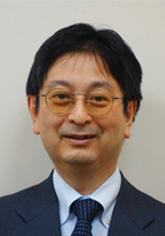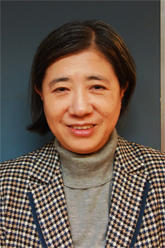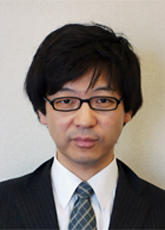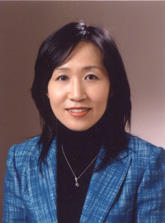In today’s academic world, competition is intensifying among US and European IT companies and publishing houses including Google, Elsevier, and Thomson Reuters for control over platforms for the presentation of specialist academic journals which have been digitized. This process has moved beyond the scope of services for the presentation of academic articles, and we are at the stage at which platforms that will provide support for research itself are being formed. Joint research making use of these platforms is increasing beyond national borders.
No Japanese companies are involved in the competition for control over these research platforms. In Japan, we seek to protect vested interests and remain committed to existing businesses, and there is little drive to open up new worlds. In order to create new businesses, it will be essential to develop human resources who understand both IT and the direction of scientific research, and are able to use these to drive business enterprises.
Leaving this situation unaddressed will have a significant negative effect on scholarship in Japan. If the national difficulty in communicating in English makes Japan an outsider in the international academic realm, and the nation’s universities and researchers come to be poorly regarded worldwide, it will represent an enormous problem for the development of science in Japan. What the nation must do is boost its ability to communicate in English-language platforms, while at the same time taking the initiative in guiding the direction of multilingual platforms.
We must also seek methods by which researchers can balance the ability to make free use of papers and data, while also respecting copyright and intellectual property. Conducting research and writing papers involves expense, and it is therefore necessary to create mechanisms to defray costs, making it possible to freely use data while also enabling the cost of its production to be recovered.
Professor Kokuryo is a leading figure in the field of research on IT and management, and was an early proponent of the importance of platforms. He has made a significant contribution to policy as a member of a series of government committees, including the Expert Evaluative Committee of the IT Strategic Headquarters.
Two changes are occurring in the realm of scholarship. One of these changes is that researchers are now able to freely read scientific and academic papers on the Internet. This “open access” has been steadily gaining ground over the past 10 to 15 years. The authors of academic papers now have their work read by a greater number of fellow researchers and ordinary members of the public, and this works in favor of the advancement of science. However, this new mode of free publication of research outcomes does not always mesh smoothly with existing social systems, for example the retention of copyright by publishers. There is also the issue of the cost of digitization of papers. These are not issues that researchers will be able to resolve by themselves.
Another revolutionary change is the trend towards not merely sharing outcomes as represented by papers, but freely publishing and sharing research data, allowing other researchers to make free use of it. This is called “open data.” The issues here are the feeling on the part of researchers that data are their own property, and uncertainty regarding the scope for publication of data and methods of doing so.
This tide of dramatic change is valuable, even if it breaks down the relationships between publishers, university libraries and researchers which have been created over the course of the years. In the US, strong taxpayer awareness functions to drive the publication of research outcomes and data. In Japan, there is little public interest in research outcomes which have been funded by taxes, and thus no impetus towards change. It would be desirable for Japanese industry to become aware, as is happening overseas, that the provision of services by private companies in the world of academia is a developing business area, and is also becoming essential to scholarship. Because Japan has no relevant laws or systems in place in this area at present, it is precisely the time to proceed with systematization in the form of the promotion of businesses. Rather than leaving responses in this area to individual universities, society as a whole should play a role to make open access a reality.
Professor Kurata studies trends in scholarly communication with a focus on information media. From an early stage, she has drawn attention to Japan’s delay in responding to a situation in which the rapid progress of digitization is changing the nature of the distribution of academic information.
The first publication of scientific journals in the 17th century, following Gutenberg’s printing revolution, made it possible to present scientific information to an overwhelmingly greater number of readers than was the case in previous eras, when the transmission of scientific information relied on the production of handwritten copies. A comparable paradigm shift is occurring in the world of scientific research today, with the development of information and communication technologies. Not only have scientific and academic papers become digital, and thus able to be freely accessed and used, but research activities involving data previously restricted to individual researchers are becoming more open to the broader community.
We are entering an era of “open science”. This series of trends can be considered to represent a process of “disruptive innovation” in the world of science. We are in a period of transition, the culmination of a process of change in the nature of scientific research which has been taking place over the course of several hundred years. This presents us with an opportunity to create new industries. The increasing number of scientific and academic papers being published and the oligopoly of commercial publishing houses means that libraries are becoming unable to cover spiraling purchase costs. Open science policies are being formulated in order to address this situation, with Europe leading the world. Japan must develop strategic policy plans, sharing risk with private companies, before new frameworks solidify, or it will be difficult for the nation to take the initiative in either the domain of scientific research or the world of private enterprise.
Japan has incorporated open science in the Fifth Science and Technology Basic Plan, making the nation appear to be standing on equal ground with the US and Europe in terms of policy. The reality, however, is that many researchers in Japan still feel a resistance towards the sharing of research data. It will therefore be essential to undertake initiatives in order to enlighten researchers, to ensure that they understand that the sharing of research data functions to their benefit, bringing rewards including higher standing in the research community.
Mr. Hayashi is involved in policy science research, and attempts to educate the scientific community regarding the importance of reform in the area of the circulation of scientific data. Making use of his knowledge of chemistry and his IT skills, he contributed to the pioneering digitization and commercialization of the journal of the Chemical Society of Japan.
Efforts are proceeding in countries throughout the world, in particular in the US and Europe, to create digital archives of tangible and intangible cultural resources that will be published on the Internet and made available to all users. The Europeana platform in the EU is a representative example, recording over 30 million cultural items. These can be viewed free of charge by any user, and the information made available can be used for research or business purposes.
In Japan also, individual organizations are creating digital archives, for example the National Diet Library (NDL Search) and the Agency for Cultural Affairs (Cultural Heritage Online). However, given that none of these archives integrates cultural resources from throughout the entire nation, and there are restrictions on rights to reuse the published data, Japan cannot boast a platform that matches Europeana.
Momentum in this area has been strong in Japan, but factors including budgetary restrictions have meant that ongoing projects have not materialized. The major difference between initiatives in Japan and Europe has been the fact that Europeana has been supported by the activities of intermediate organizations (aggregators) which integrate the data provided by individual cultural institutions. The expense involved can make it extremely difficult for each cultural institution involved to retain specialists in fields such as law and digital technology; the existence of aggregators means that this is not necessary.
The formation of networks to provide personal, intellectual, and technical support will be important to digital archiving efforts in Japan. In order to do so, we will need to foster human resources able to link the domain of traditional culture with the world of information technology.
Assistant Professor Ikegai is an expert on digital archiving initiatives in Europe and the US. As a member of The University of Tokyo’s New Library Project team, he is working towards the realization of a Japanese version of the Europeana platform.
The diffusion of online tools is having a profound effect on science. Not only are the ways in which scientific discoveries made changing, but the relationship between science and society is also undergoing significant changes. One of these changes is the advent of “citizen science.” This refers to the involvement of ordinary citizens in the collection and analysis of data in order to support scientific research. Citizen involvement has always been an aspect of the US and Europe; the increase in online activity has made this involvement more visible in the realm of science, and further invigorated the phenomenon. “Galaxy Zoo,” a project in which citizens participate in the classification of images of galaxies, and “eBird,” in which citizens provide data regarding their observation of birds, can be pointed to as representative examples.
By contrast, the presence of citizen science is low in Japanese society as a whole. The difficulty of using the relevant interfaces is a major factor in this. For example, a participatory survey of Japanese bird and animal life conducted by the Ministry of the Environment asked citizens to upload photographs that they had taken; however, users found the operability of the interface extremely poor in comparison to existing SNS interfaces. If the Ministry had engaged the cooperation of private SNS companies, it would have been able to provide more user-friendly tools, making it easier for citizens to participate. What is more, using the knowledge and expertise of these companies, the experience could have been made more enjoyable, contributing to greater public involvement. If it was able to draw in children and the elderly, this type of cooperation between private enterprise, government, and academia could invigorate citizen science in Japan also. There is also still room for new initiatives to emerge from Japan and spread to the US and Europe.
The state of Japan’s public finances will presumably make it impossible to expect scholarship, including scientific research, to be fully government funded in the future. Given this, citizen science will represent an important factor in boosting the nation’s scientific capacity.
As an independent researcher who is also a business proprietor, Dr. Komatsu conducts research under contract for various research institutes. He proposes
a specifi cally Japanese combination of national strengths such as online gaming and the organization of circles with shared interests, with citizen science.
The Internet is generating radical change in the area of scientific research, a process which is being dubbed “the open science revolution.” The concept of “open science” has received particular attention since the 2011 publication of Reinventing Discovery by the theoretical physicist Michael Nielsen. It is an experiment in transforming scientific research, which is all too easily confined in the ivory tower, into something more open to the broader society.
However, we cannot be unreservedly optimistic about this tide of change, because it holds the potential to significantly change the existing research and business environments. For example, Elsevier, the publisher of international scientific journals, is now digitizing its specialist papers, and making them available on the Internet for a fee. University libraries and research institutions have to establish expensive contracts in order to access these materials.
Another change of particular note is the fact that Elsevier’s parent company, the RELX Group, is using its holdings of academic data and its extensive network to create businesses offering science and technology-related, content-related, and data analysis-related solutions to clients. The Group’s revenues were close to one trillion yen in 2014, demonstrating that an understanding of scientific data also grants an advantage in business.
As indicated by the five experts interviewed in this issue of My Vision, it is clear that the response to be made to the transitional phase represented by open science is not an issue for individual universities or researchers. Precisely because this is a transitional phase in which the necessary systems and rules have not been established in the market, Japanese society as a whole must bring its collective intelligence to bear on seeking measures that will enable it to obtain the benefits of open science.
Japan faces numerous problems that must be overcome, among them a delay in efforts towards the digitization of data by publishing companies, a lack of awareness on the part of researchers regarding the publication of outcomes, and a lack of venture companies seeking to provide technologies. But all of these problems can be solved. Precisely now is the time when representatives of diverse fields, including publishing houses, universities, government, and the world of industry, must come together in order to work towards the open science revolution.
------------------------------------------------------------
Interviewer: Chiharu Hagi, NIRA Research Coordinator & Assistant
Editor: Kazuyoshi Harada
Period of interviews: November - December 2015
This is a translation of a paper originally published in Japanese.NIRA bears full responsibility for the translation presented here. Translated by Michael Faul.
 Jiro Kokuryo Professor, Faculty of Policy Management, Keio UniversityIn today’s academic world, competition is intensifying...
Jiro Kokuryo Professor, Faculty of Policy Management, Keio UniversityIn today’s academic world, competition is intensifying... Keiko Kurata Professor, Faculty of Letters, Keio UniversityTwo changes are occurring in the realm of scholarship. One of ...
Keiko Kurata Professor, Faculty of Letters, Keio UniversityTwo changes are occurring in the realm of scholarship. One of ... Kazuhiro Hayashi Senior Research Fellow,National Institute of Science & Technology Policy, Ministry of Education, Culture, Sports, Science & TechnologyThe first publication of scientific journals in the 17th century...
Kazuhiro Hayashi Senior Research Fellow,National Institute of Science & Technology Policy, Ministry of Education, Culture, Sports, Science & TechnologyThe first publication of scientific journals in the 17th century... Naoto Ikegai Project Assistant Professor, New Library Project Office, University Library, Interfaculty Initiative in Information Studies, The University of TokyoEfforts are proceeding in countries throughout the world, in particular...
Naoto Ikegai Project Assistant Professor, New Library Project Office, University Library, Interfaculty Initiative in Information Studies, The University of TokyoEfforts are proceeding in countries throughout the world, in particular... Tadashi Komatsu Representative, Komatsu Research OfficeThe diffusion of online tools is having a profound effect on science...
Tadashi Komatsu Representative, Komatsu Research OfficeThe diffusion of online tools is having a profound effect on science...



EXPERT OPINIONS
01
We must increase Japanʼs presence in the area of knowledge platforms
We must increase Japanʼs presence in the area of knowledge platforms
Jiro Kokuryo Professor, Faculty of Policy Management, Keio University
In today’s academic world, competition is intensifying among US and European IT companies and publishing houses including Google, Elsevier, and Thomson Reuters for control over platforms for the presentation of specialist academic journals which have been digitized. This process has moved beyond the scope of services for the presentation of academic articles, and we are at the stage at which platforms that will provide support for research itself are being formed. Joint research making use of these platforms is increasing beyond national borders.
No Japanese companies are involved in the competition for control over these research platforms. In Japan, we seek to protect vested interests and remain committed to existing businesses, and there is little drive to open up new worlds. In order to create new businesses, it will be essential to develop human resources who understand both IT and the direction of scientific research, and are able to use these to drive business enterprises.
Leaving this situation unaddressed will have a significant negative effect on scholarship in Japan. If the national difficulty in communicating in English makes Japan an outsider in the international academic realm, and the nation’s universities and researchers come to be poorly regarded worldwide, it will represent an enormous problem for the development of science in Japan. What the nation must do is boost its ability to communicate in English-language platforms, while at the same time taking the initiative in guiding the direction of multilingual platforms.
We must also seek methods by which researchers can balance the ability to make free use of papers and data, while also respecting copyright and intellectual property. Conducting research and writing papers involves expense, and it is therefore necessary to create mechanisms to defray costs, making it possible to freely use data while also enabling the cost of its production to be recovered.
Professor Kokuryo is a leading figure in the field of research on IT and management, and was an early proponent of the importance of platforms. He has made a significant contribution to policy as a member of a series of government committees, including the Expert Evaluative Committee of the IT Strategic Headquarters.
02
The changing realm of scholarship
The changing realm of scholarship
Keiko Kurata Professor, Faculty of Letters, Keio University
Two changes are occurring in the realm of scholarship. One of these changes is that researchers are now able to freely read scientific and academic papers on the Internet. This “open access” has been steadily gaining ground over the past 10 to 15 years. The authors of academic papers now have their work read by a greater number of fellow researchers and ordinary members of the public, and this works in favor of the advancement of science. However, this new mode of free publication of research outcomes does not always mesh smoothly with existing social systems, for example the retention of copyright by publishers. There is also the issue of the cost of digitization of papers. These are not issues that researchers will be able to resolve by themselves.
Another revolutionary change is the trend towards not merely sharing outcomes as represented by papers, but freely publishing and sharing research data, allowing other researchers to make free use of it. This is called “open data.” The issues here are the feeling on the part of researchers that data are their own property, and uncertainty regarding the scope for publication of data and methods of doing so.
This tide of dramatic change is valuable, even if it breaks down the relationships between publishers, university libraries and researchers which have been created over the course of the years. In the US, strong taxpayer awareness functions to drive the publication of research outcomes and data. In Japan, there is little public interest in research outcomes which have been funded by taxes, and thus no impetus towards change. It would be desirable for Japanese industry to become aware, as is happening overseas, that the provision of services by private companies in the world of academia is a developing business area, and is also becoming essential to scholarship. Because Japan has no relevant laws or systems in place in this area at present, it is precisely the time to proceed with systematization in the form of the promotion of businesses. Rather than leaving responses in this area to individual universities, society as a whole should play a role to make open access a reality.
Professor Kurata studies trends in scholarly communication with a focus on information media. From an early stage, she has drawn attention to Japan’s delay in responding to a situation in which the rapid progress of digitization is changing the nature of the distribution of academic information.
03
Open science will generate paradigm shifts
Open science will generate paradigm shifts
Kazuhiro Hayashi Senior Research Fellow,National Institute of Science & Technology Policy, Ministry of Education, Culture, Sports, Science & Technology
The first publication of scientific journals in the 17th century, following Gutenberg’s printing revolution, made it possible to present scientific information to an overwhelmingly greater number of readers than was the case in previous eras, when the transmission of scientific information relied on the production of handwritten copies. A comparable paradigm shift is occurring in the world of scientific research today, with the development of information and communication technologies. Not only have scientific and academic papers become digital, and thus able to be freely accessed and used, but research activities involving data previously restricted to individual researchers are becoming more open to the broader community.
We are entering an era of “open science”. This series of trends can be considered to represent a process of “disruptive innovation” in the world of science. We are in a period of transition, the culmination of a process of change in the nature of scientific research which has been taking place over the course of several hundred years. This presents us with an opportunity to create new industries. The increasing number of scientific and academic papers being published and the oligopoly of commercial publishing houses means that libraries are becoming unable to cover spiraling purchase costs. Open science policies are being formulated in order to address this situation, with Europe leading the world. Japan must develop strategic policy plans, sharing risk with private companies, before new frameworks solidify, or it will be difficult for the nation to take the initiative in either the domain of scientific research or the world of private enterprise.
Japan has incorporated open science in the Fifth Science and Technology Basic Plan, making the nation appear to be standing on equal ground with the US and Europe in terms of policy. The reality, however, is that many researchers in Japan still feel a resistance towards the sharing of research data. It will therefore be essential to undertake initiatives in order to enlighten researchers, to ensure that they understand that the sharing of research data functions to their benefit, bringing rewards including higher standing in the research community.
Mr. Hayashi is involved in policy science research, and attempts to educate the scientific community regarding the importance of reform in the area of the circulation of scientific data. Making use of his knowledge of chemistry and his IT skills, he contributed to the pioneering digitization and commercialization of the journal of the Chemical Society of Japan.
04
Advance the creation of a digital archive of cultural resources
Advance the creation of a digital archive of cultural resources
Naoto Ikegai Project Assistant Professor, New Library Project Office, University Library, Interfaculty Initiative in Information Studies, The University of Tokyo
Efforts are proceeding in countries throughout the world, in particular in the US and Europe, to create digital archives of tangible and intangible cultural resources that will be published on the Internet and made available to all users. The Europeana platform in the EU is a representative example, recording over 30 million cultural items. These can be viewed free of charge by any user, and the information made available can be used for research or business purposes.
In Japan also, individual organizations are creating digital archives, for example the National Diet Library (NDL Search) and the Agency for Cultural Affairs (Cultural Heritage Online). However, given that none of these archives integrates cultural resources from throughout the entire nation, and there are restrictions on rights to reuse the published data, Japan cannot boast a platform that matches Europeana.
Momentum in this area has been strong in Japan, but factors including budgetary restrictions have meant that ongoing projects have not materialized. The major difference between initiatives in Japan and Europe has been the fact that Europeana has been supported by the activities of intermediate organizations (aggregators) which integrate the data provided by individual cultural institutions. The expense involved can make it extremely difficult for each cultural institution involved to retain specialists in fields such as law and digital technology; the existence of aggregators means that this is not necessary.
The formation of networks to provide personal, intellectual, and technical support will be important to digital archiving efforts in Japan. In order to do so, we will need to foster human resources able to link the domain of traditional culture with the world of information technology.
Assistant Professor Ikegai is an expert on digital archiving initiatives in Europe and the US. As a member of The University of Tokyo’s New Library Project team, he is working towards the realization of a Japanese version of the Europeana platform.
05
Invigorating “citizen science”
Invigorating “citizen science”
Tadashi Komatsu Representative, Komatsu Research Office
The diffusion of online tools is having a profound effect on science. Not only are the ways in which scientific discoveries made changing, but the relationship between science and society is also undergoing significant changes. One of these changes is the advent of “citizen science.” This refers to the involvement of ordinary citizens in the collection and analysis of data in order to support scientific research. Citizen involvement has always been an aspect of the US and Europe; the increase in online activity has made this involvement more visible in the realm of science, and further invigorated the phenomenon. “Galaxy Zoo,” a project in which citizens participate in the classification of images of galaxies, and “eBird,” in which citizens provide data regarding their observation of birds, can be pointed to as representative examples.
By contrast, the presence of citizen science is low in Japanese society as a whole. The difficulty of using the relevant interfaces is a major factor in this. For example, a participatory survey of Japanese bird and animal life conducted by the Ministry of the Environment asked citizens to upload photographs that they had taken; however, users found the operability of the interface extremely poor in comparison to existing SNS interfaces. If the Ministry had engaged the cooperation of private SNS companies, it would have been able to provide more user-friendly tools, making it easier for citizens to participate. What is more, using the knowledge and expertise of these companies, the experience could have been made more enjoyable, contributing to greater public involvement. If it was able to draw in children and the elderly, this type of cooperation between private enterprise, government, and academia could invigorate citizen science in Japan also. There is also still room for new initiatives to emerge from Japan and spread to the US and Europe.
The state of Japan’s public finances will presumably make it impossible to expect scholarship, including scientific research, to be fully government funded in the future. Given this, citizen science will represent an important factor in boosting the nation’s scientific capacity.
As an independent researcher who is also a business proprietor, Dr. Komatsu conducts research under contract for various research institutes. He proposes
a specifi cally Japanese combination of national strengths such as online gaming and the organization of circles with shared interests, with citizen science.
About this Issue
Disruptive Innovation in the Domain of Knowledge
Disruptive Innovation in the Domain of Knowledge
Reiko Kanda NIRA Executive Vice President
The Internet is generating radical change in the area of scientific research, a process which is being dubbed “the open science revolution.” The concept of “open science” has received particular attention since the 2011 publication of Reinventing Discovery by the theoretical physicist Michael Nielsen. It is an experiment in transforming scientific research, which is all too easily confined in the ivory tower, into something more open to the broader society.
However, we cannot be unreservedly optimistic about this tide of change, because it holds the potential to significantly change the existing research and business environments. For example, Elsevier, the publisher of international scientific journals, is now digitizing its specialist papers, and making them available on the Internet for a fee. University libraries and research institutions have to establish expensive contracts in order to access these materials.
Another change of particular note is the fact that Elsevier’s parent company, the RELX Group, is using its holdings of academic data and its extensive network to create businesses offering science and technology-related, content-related, and data analysis-related solutions to clients. The Group’s revenues were close to one trillion yen in 2014, demonstrating that an understanding of scientific data also grants an advantage in business.
As indicated by the five experts interviewed in this issue of My Vision, it is clear that the response to be made to the transitional phase represented by open science is not an issue for individual universities or researchers. Precisely because this is a transitional phase in which the necessary systems and rules have not been established in the market, Japanese society as a whole must bring its collective intelligence to bear on seeking measures that will enable it to obtain the benefits of open science.
Japan faces numerous problems that must be overcome, among them a delay in efforts towards the digitization of data by publishing companies, a lack of awareness on the part of researchers regarding the publication of outcomes, and a lack of venture companies seeking to provide technologies. But all of these problems can be solved. Precisely now is the time when representatives of diverse fields, including publishing houses, universities, government, and the world of industry, must come together in order to work towards the open science revolution.
------------------------------------------------------------
Interviewer: Chiharu Hagi, NIRA Research Coordinator & Assistant
Editor: Kazuyoshi Harada
Period of interviews: November - December 2015
This is a translation of a paper originally published in Japanese.NIRA bears full responsibility for the translation presented here. Translated by Michael Faul.